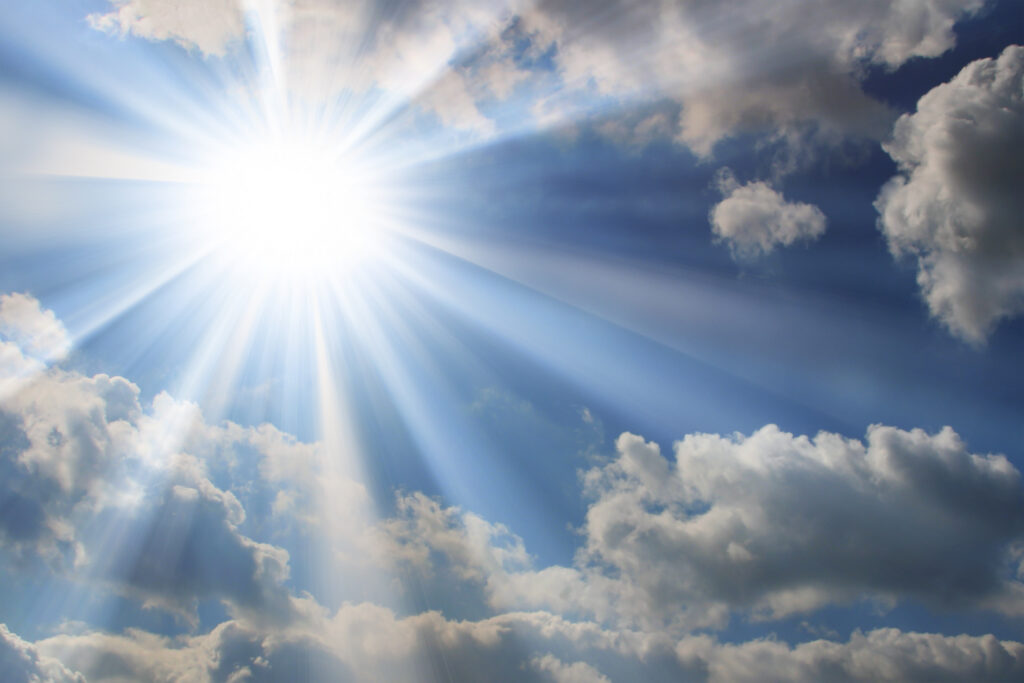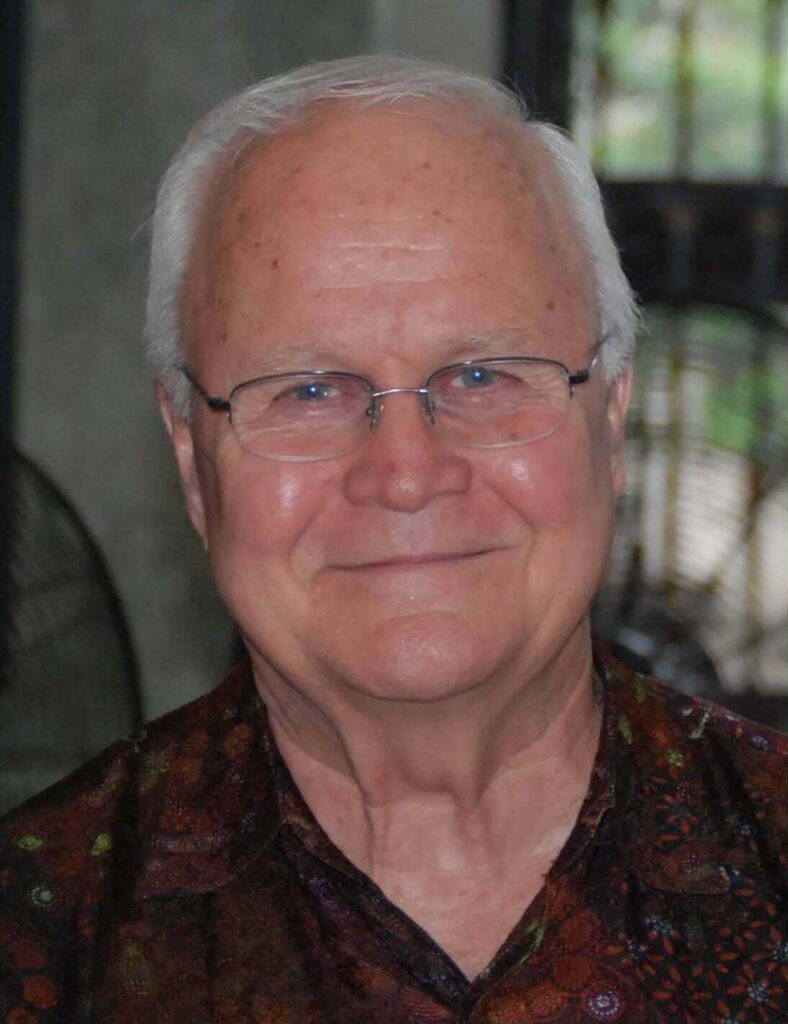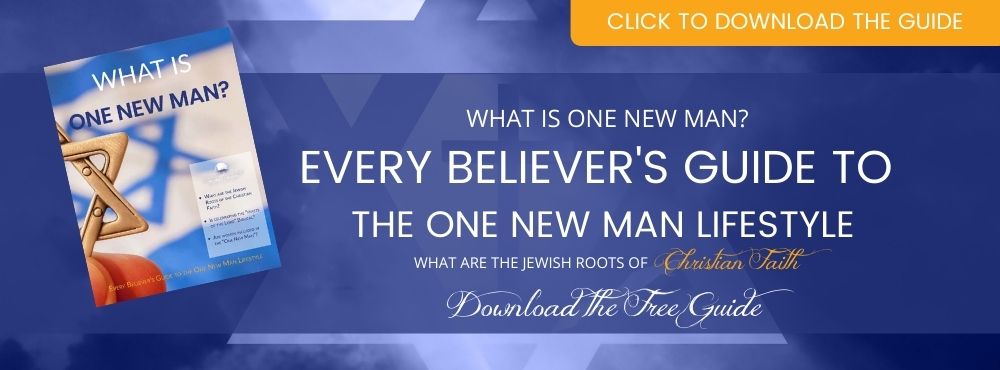Glimmers of the Season
“Once Upon a Town” by Bob Greene is an amazing story of community. When freedom, as it was once known, was seriously at risk, North Platte, Nebraska, was a train stop for troops traveling from the western U.S. to the European theater of WWII and from the east to the Pacific front. Greene’s book portrays a sometimes lost small-town potential for unity and cooperation triggered in this wonder of community spirit.
Citizens came from miles around to serve the troops heading to war during the half-hour stops with sandwiches, coffee, slices of homemade pie, and a lot of love. From its inception, it continued for every troop train coming through during the war, sometimes several a day. Years later, Greene tracked down and interviewed soldiers who had survived the war. Many broke down and wept, none forgetting the kindness of that community. A mobilization of community that made a mark remembered for decades.
Another community stands out in my mind–a very different culture, but the same spirit. It was the fallback command center of Russia when Hitler’s troops advanced on Moscow. After WWII, it became the center of Russian Cold War ballistic missile activities. Until recent years, along with the roads leading to it, it was removed from their maps.
In 2007, I was in that city 800 miles east of Moscow, conducting my God’s economy entrepreneurial workshop for a ten-year-old, 1000 member growing congregation of believers who had just purchased, what at the time was the tenth most historically significant site in all of Russia. It was one of Lenin’s former palaces. This extensive four-story edifice was wisely turned into not just a place for believers to meet, but a community center.
The leadership of this congregation had set in motion ancient wisdom, underscoring the purpose of the biblical community. Russia, not known for its kindness to people of God, has had a track record of horror stories of persecution. Yet, this congregation gained the approval of authorities to purchase this historic property. The story goes that their application triggered the ire of a rash of mid-level officials. Then while the plans for backlash were amassing, a very senior official took the bull by the horns telling the others: “Give the Christians whatever they want …they are doing so much good.”
This congregation had proactive activities within their community that included feeding the poor, a drug-rehab program, and a prisoner program that resulted in those released becoming good citizens. They were, as a mobilized community, doing more than the government social programs. With the world around them watching, they were another mobilized community reshaping things.
Then, one of the more intentional manifestations of community strategy I have been honored to have worked with reflects not just a cross-denominational effort but one involving Jews and Gentiles operating globally. It is an Israeli initiative that provides food, clothing and housewares to the poor in Israel. From Asia to the U.S., shipping containers have steadily been supplied and then distributed through outlets operated by local Israeli believers.
Despite the wonders, inventions, and start-up exploits emanating from Israel, new immigrants go through a season of adjusting, learning the language, and in some cases barely surviving to enable the next generation to emerge culturally and sufficiently adjusted to be able to begin grasping the available opportunity. So, even less than a generation ago, Jewish believers in Israel faced a stigma brought about, at least in part, by the influence of the Chassidic response that a Jew could not believe in Yeshua and still be a Jew. Some endured protests. Some lost their jobs. But this initiative and others like it I’ve been acquainted with, run by believers, are fulfilling a genuine need due to roughly a third of the population being under the poverty line. The added value of these efforts has been changing the perception of employers and neighbors in their acceptance of Israeli Messianic Jews.
Differences in Priorities
Yet, in today’s Western Christian mindset, the priority seems to lean toward putting together a fund-raising program for a building. I’m certainly not against having buildings for activities of the household of faith. Yet, in lands of persecution, as was the case in the early church, people would meet from house to house.
In today’s emerging season holding a spiritual atmosphere, not unlike the early church and many of today’s persecuted brethren, the first priority must be given to strengthening the brethren. The second priority, as was the case in the Russian congregation, should be in serving the community. THEN should come the opportunity for big structures to better serve these growing priorities, which became a community center in the case of the Russian congregation.
I once served on a church board that purchased a large, enclosed shopping center that the senior pastor envisioned as a community center. However, the practical influences of those around him reshaped what I considered as his inspired intentions into this facility becoming a ministry center. Nothing wrong with that, but the potential of the model of a community center would have served a far greater purpose in the community.
Years ago, I belonged to a local Jewish Community Center where I worked out and took members of my family swimming. It was wonderful and wholesome. A safe place. A safe place where people met and grew and shared common-ground as a community. This same dynamic was established by the Russian believers in that former palace of Lenin’s. Believers and spiritually hungry non-believers alike came from miles around to the Community Center established in this remote Russian city for the solace and opportunities of the activities and its spiritual atmosphere, an oasis in otherwise toxic environs.
The Restoration of the Model
It is a new season. The model for church is being restored. It is being restored to its early roots. It’s the model from a time when those in the church operated with power. In the early church, believers gathered in homes to be strengthened. With this priority served, the result was the brethren being out in the community, releasing community. It drew people due to the brethren being a part and serving, releasing the God-factor, as a community.
Jesus admonished that we would be in the world, but not of the world. In other words, it is a culture thing and with the culture thing, it is driven by how we think and establish our priorities and place in the world around us.
However, the priorities evidenced in the early church waned and then lost the culture war when the Jewish roots were expunged from the faith. With that was the loss of the priority and power that connected the generations, nurturing the communities they served.
The model lost involves a higher moral code, for sure. A higher moral code for living in the world as we intentionally serve our own. But it is more, much more. Additionally, it involves a separate identity and with that, a factor of self-sufficiency as a people. It also draws on excellence, of becoming the best at what you do and then giving a hand in helping neighbors also to do so.
Yet it is more still, much, much more. It is leadership, but leadership of a different variety, not patterned after the world’s brand of leadership, but rather service and example. It’s the leadership that influences and attracts, bringing change to the community and culture around it. It is a Kingdom thing and the gateway into the power, which comes through humility.
Jewish Community Centers and the Russian Community Center run by believers are examples of game-changing strategies that trigger favor and keep God’s people safe while impacting the community and cultures around them.
Over the centuries, Jews have excelled with such game-changing models. This was clearly exhibited by both Joseph and Daniel, as leaders of Kingdom influence. In the case of Joseph and Daniel, each brought sufficient change to the ruling decisions of their host cultures to keep God’s people safe with the intent to return them to the Land. During the Middle Ages, the positive role of Jews as bankers, merchants, and advisors to kings and the ruling elite has profoundly influenced Western culture’s moral, judicial, governmental, and economic foundations.

Understanding the Times and the Changes
There is an acceleration to the changes taking us into today’s fast-evolving season. The bar has been raised. The acceleration will accompany an authority for those with the mantle guiding the shift.
This shift will bear on the focus given to strengthening the brethren. As the Body matures spiritually, the current emphasis dealing with soul and sin issues will become more direct, as it was with Ananias and Sapphira, driven by the fear of God, allowing greater focus for strategies and deployment of community strategies. The Body is growing into serving as a society of leaders who operate in power and holiness as communities. Power will be in demonstration from undefiled communities.
With this acceleration is an urgency with the shift in these priorities. We are confronting, as Jesus saw it, “an evil generation,” not unlike that which marked the spiritual atmosphere and required greater commitment for not only His day and the early Church, but the heavy occult environment in evidence during times like those of Joseph and Daniel.

It is a season defined by the sequence in John 12 with the words: “Walk while you have the Light, lest darkness overtakes you. He who walks in darkness does not know where he is going. While you have the Light, believe in the Light, that you may become sons of Light.” Jesus noted in Matthew 8 that there would be ones who should be heirs of the Kingdom, but who would be absorbed by the darkness where there would be weeping and gnashing of teeth. The admonition is not to sleep as others do, but to watch and be sober as ambassadors of the Light.
Both Joseph and Daniel’s greatest exploits came during seasons of darkness. Yet each had been prepared in the crucible to walk by the Spirit. Survival will require total commitment. In times of darkness, religion will fail. Unfortunately, religious spirits will abound. Those coming from the East and the West, who Jesus said would go on to sit down at the table with Abraham, Isaac, and Jacob will be those who demonstrate the leadership in walking by the Spirit, through the darkness as ambassadors of Light.
Isaiah caught a glimmer of these times when darkness would cover the earth, and deep darkness covers the peoples, but that the Lord would arise over them and His glory would be seen upon them. Nations would be drawn to their light and kings to the brightness of their rising. A prophecy indeed for the restoration of Israel, but within that context, instruction to those who make a choice to walk in the light of His presence.
The darkness of this season is progressively being punctuated by culture wars, polarized and antagonistic against ones walking in paths that define them as God’s people. This spiritual backlash will be anticipatory responses led by the Spirit of alignments that yield safe places and places of refuge. Maintaining the path will be guided by the model: a higher moral code, an undefiled identity, self-sufficiency, excellence, and leadership, but the overriding secret to prevailing will be entering His rest.
In addition to abiding in His rest individually, will, more importantly, be doing so through the strategy and exercise of community. THIS is the light sitting on a hill that cannot be hidden that Jesus referred to. It is community released through His rest, in abiding in Him that draws the world to it, bringing positive momentum to changing cultures and nations.
The Remnant and the Fear of God
In discerning the essential glimmers of the season, it will be comprised of those embracing the required spiritual maturity foreseen by Paul in his missive to the Ephesians. The focus, wisdom and maturity of Joseph and Daniel will be foundational to dealing with rulers of the world, as well as in the power and priorities needed to guide the course of world events into the pathways defined long ago by the prophets.
This will parallel the importance of the role of the mysteries spoken of throughout the Bible and of God’s timing in knowing what is to be prayed into …and then sealed up, and what is to be released. In recognizing the season, we are to become one with the Light to operate as game-changers and society of leaders who think and operate strategically as undefiled citizens of the Kingdom, out there in the world but not of it, releasing community strategies that will be drawing those observing to the Light.
It is unfortunate that in the West that spiritual success has been so strongly linked to money and the ability to raise funds that too often have had tendencies to nurture egos more than the Kingdom. While this season will consist of many with mantles to administer great amounts of resources, there will be a difference in intent from the twentieth-century Western model, which had value for its time despite the diversions of the flesh. We’ve emerged into a new century and a new era. Instead, there will be a keen focus given to genuine community strategies, mobilizing sheep nations, and the restoration of Israel. From such priorities, the money will come—from unusual sources.
The early church’s spontaneity of meeting from house to house for prayer and worship will be in strong evidence. This will complement community centers, serving an array of community development functions as the house prayer movement gains momentum.
Paul advised that when you come together, each of you has a psalm, a teaching, a tongue, and an interpretation. He was describing interactive gatherings in which all played a part. It is the dynamic that releases the Spirit to operate when we gather. It is a far cry from the spectator model that crimps the potential and the power. The restoration of interactive gatherings comprises a key to the strategy in this season. It also is the basis of mobilizing a society of leaders who all play a part.
How sad for those whose priority of tapping the depths of our knowledge of the Lord and the release of His power seems to wane until persecution comes. For those of us who have it, may we get the model right without having to lose our freedom. As the Spirit guides with anticipatory responses to the times, may there be the wisdom in restoring the early church’s model and priorities with the simplicity, prayers, and strategies embraced by segments of those living under persecution. It reflects the priority of strengthening the brethren to be leaders and of strategically serving the community.
While most believers view the community as a place of belonging, and it is, for the remnant guiding the way, community, more importantly, will be the strategy and strength by which they engage with the world around them. As was the case for Joseph and Daniel, the authority of wisdom and the prophetic will be vital in identifying their role with worldly rulers. The unity demonstrated in North Platte of standing behind and extending honor to those going to the front will have spiritual parallels to the days ahead.
Small-Town Community Spirit
The examples of the Russian congregation’s and the Israeli believers’ strategies changing the spiritual climate will be applied to create ripples of influence and opportunity that touch the lives of the helpless with social programs that serve with the wisdom to teach them how to fish, rather than just feeding them for a day.
The common thread between the dynamics of North Platte, the Russian congregation, and the Israeli believers’ efforts, no doubt, is the overflow of the God factor. But with that God-factor is the small-town brand of community spirit. Something that will trigger nostalgia for many, yet still is the catalyst for restoring the Church to the vibrancy of the difference made during the first century. Servanthood. Cooperation. Spontaneity. Simplicity. Honor. Prayer. Sacrifice. Humility. It’s a culture thing that goes beyond belonging. It carries an expectation of the reality that God is doing something in a world upside-down, and you are a key part.
Leadership and community development will become the prime focus of the way church conducts outreach these days. Community centers operated by believers will provide safe places for their own and others seeking the warmth and solace of sound spiritual environs. Technology advancements, creative applications that serve the unique needs of those around them, and the restoration of the supernatural will bring change to not only cultures but also industries, marking the witness of believing communities.
Throughout the Bible are repeated admonitions to know Him and His ways. The psalmist points to an essential ingredient in knowing Him: speaking truth in your own heart. The prophet indicated that ones who live by deceit and pretense would fall short in knowing God. It is why the fearful, unbelieving, and liars are among those who will fail to make the cut of the second death. The standard for these times begins by being real… then engaging.
Being made in God’s image means being reflectors of His presence. That is behind Jesus’ words to believe in the Light that we may become sons of the Light. It is what embraces His heart and His ways. In the parable of the wedding feast, when the king challenged the one who had come in without a wedding garment, he was not identified by being a reflector of the Light. Joseph and Daniel were recognized by their host-rulers by their anointing, the Spirit in them, as reflectors of God’s presence with the prophetic wisdom that came with being sons of the Light.
Those emerging are sons of the Light, a remnant of the committed, governed by the fear of God and led by the Spirit. There is a diverse community not enticed by mammon, the host culture(s), or popular themes of watered-down precepts of men and their illusions. It is facing reality head-on. While there may be imposters enticing those who fail to walk in the Light while they have it, the pure in heart, even among the world around them, will know the difference. It will be a remnant who are a band of leaders led by ones prepared in the crucible of the apostolic and prophetic with authority to match the calling. Mysteries, long hidden will be revealed, but only in their time. Those who are wise will know. As noted by Daniel, in the time of the end many shall be purified and refined. The wicked will do wickedly and none of the wicked will understand. But the wise will understand.
_________________________________________
Morris Ruddick has been a forerunner and voice for the higher dimensions of spiritual game-changers and intercessors since the mid-90s. Mr. Ruddick is the founder of Global Initiatives Foundation and designer of the God’s Economy Entrepreneurial Equippers Program and the Jewish Business Secrets YouTube series.
He is the author of “The Joseph-Daniel Calling;” “Gods Economy, Israel and the Nations;” “The Heart of a King;” “Something More;” “Righteous Power in a Corrupt World;” “Leadership by Anointing;” and “Mantle of Fire,” which address the mobilization of business and governmental leaders with destinies to impact their communities. They are available in print and e-versions from www.Amazon.com, www.apple.com/ibooks, and www.BarnesandNoble.com.
Global Initiatives Foundation (www.strategic-initiatives.org) is a tax-exempt 501 (c) 3 non-profit whose efforts are enabled by the generosity of a remnant of faithful friends and contributors. http://strategicintercession.org/support/
2021 Copyright Morris Ruddick — info@strategic-initiatives.orgSince early 1996, the Strategic Intercession Global Network (SIGN) has mobilized prophetic intercessors and leaders committed to targeting strategic-level issues impacting the Body on a global basis. The Joseph-Daniel Calling blog and the Jewish Business Secrets blog offer greater depth on these topics. For more information go to http://strategic-initiatives.org/membership-blogs/ and http://strategic-initiatives.org

